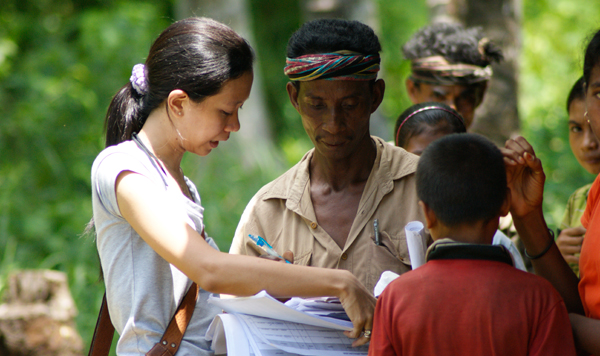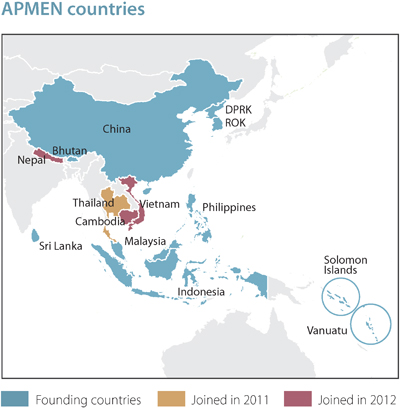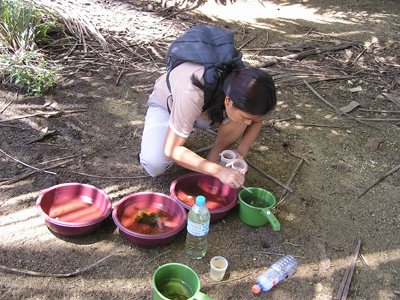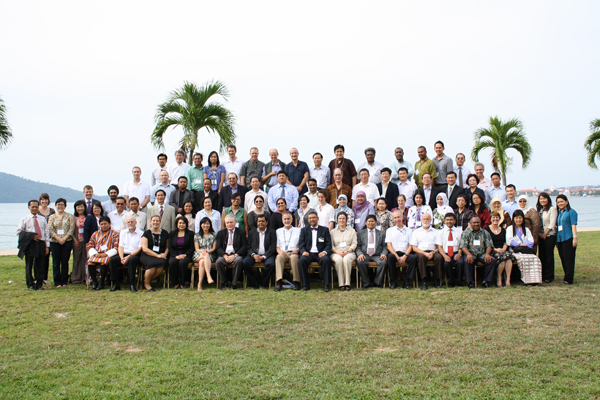Leaders Envision Malaria-Free Asia Pacific Region
UCSF Global Health Group Supports Malaria 2012 Conference in Australia

Thanks to significant global, regional and domestic investment and intensive efforts in many countries malaria is being brought under control.
The Australian government, with support of UCSF's Global Health Group, will host “Malaria 2012: Saving Lives in the Asia-Pacific” in the Asia-Pacific in Sydney, Australia, to showcase progress throughout the Asia Pacific region in controlling and eliminating malaria.
The conference will bring together Ministers of Health and Foreign Affairs from many of the 22 countries battling malaria in the region, as well as regional and international partners including the U.S. government and UN Special Envoy for Malaria, to invigorate and promote international action to achieve the ultimate goal of eliminating the disease from the entire region.

The 14-country APMEN network works to advocate for and support malaria elimination in the Asia Pacific.
Malaria continues to be a major public health threat in the region, killing an estimated 43,492 people in 2010 in the Asia Pacific and causing a major drain on productivity and family livelihoods due to illness and lost work.
Thanks to significant global, regional and domestic investment and intensive efforts in many countries, however, malaria is being brought under control. For example, from 1994 to 2010, Bhutan's malaria program achieved a 98.7 percent reduction in cases — a success attributable to strategically targeting interventions for higher-risk populations. Sri Lanka has slashed malaria by 99.9 percent, from about 265,000 cases in 1999 to only 124 local cases in 2011, despite decades of civil war.
Across a group of 14 countries that comprise the Asia Pacific Malaria Elimination Network, or APMEN (Bhutan, Cambodia, China, Democratic People's Republic of Korea, Indonesia, Malaysia, Nepal, Philippines, Republic of Korea, Solomon Islands, Sri Lanka, Thailand, Vanuatu and Vietnam), all of which have national or subnational goals for malaria elimination, total malaria cases have been more than halved (58 percent) from 2000 to 2010.

Three countries (Indonesia, Nepal and Vietnam) account for nearly 70 perecent of the drop. The 14-country APMEN network works to advocate for and support malaria elimination in the Asia Pacific, and has emerged as a powerful forum to address shared challenges and harness collective resources among its member countries.
In light of this progress, Malaria 2012 seeks to set a bold goal for the Asia Pacific countries and their governments: to completely eliminate the disease from half of the 22 malaria-burdened countries in the Asia Pacific by 2025.
Sir Richard Feachem, director of the UCSF Global Health Group and co-chair of APMEN, thinks this aim is ambitious but achievable. "Our vision is a malaria-free Asia Pacific region, and with the right blend of scientific rigor, program consistency and sustained commitment, we should be able to eliminate malaria in 11 countries within the next 13 years," says Feachem. "Several Asia Pacific countries are closing in on the elimination finish line — we, the global health community and world at large, need to ensure the political and financial resources to complete that final mile."
Read the full story on the Global Health Sciences website.

Richard Feachem, director of the UCSF Global Health Group and co-chair of APMEN who is seated here in the front row, center, says "Our vision is a malaria-free Asia Pacific region."
Photos courtesy of APMEN.